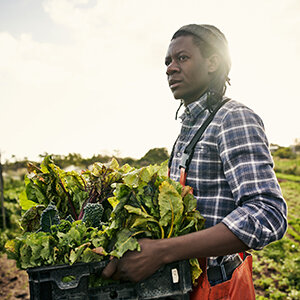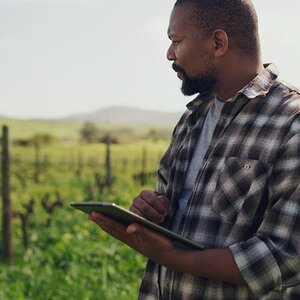Rockefeller commits $11 million to expand regenerative agriculture

The Rockefeller Foundation has announced grants totaling more than $11 million to 10 organizations in support of efforts to expand adoption of Indigenous and regenerative agriculture practices around the world.
Announced during the United Nations Climate Change Conference (COP27) in Egypt, the funding will help scale development, data analysis, financing, and education around regenerative agricultural practices, which can improve global food systems and mitigate the global food crisis. Regenerative agriculture—with roots in Indigenous traditional ecological knowledge and food systems—takes a holistic approach that prioritizes the health of people, animals, and the environment. According to the foundation, food systems produce about one-third of global greenhouse gas emissions, and agricultural expansion accounts for almost 90 percent of global deforestation. Transitioning to more sustainable food systems could contribute a 20 percent reduction in emissions by 2050 and help keep temperature increases below the 1.5°C target and improve the nutrition and health of 3.1 billion people who currently cannot afford a healthy diet.
Recipients include Meridian Institute, which will work to accelerate food producer adoption of regenerative agriculture practices; Amazon Conservation, which will advance Indigenous agroforestry in tropical South America using a community-led approach; Deep Medicine, in support of its Farming as Medicine program and returning land to Indigenous people; Indigenous Partnership for Agrobiodiversity and Food Sovereignty for demonstration projects in India; Thailand, Kenya, and Mexico; RSF Social Finance, in support of the Pawanka Fund, which aims to deepen collaboration among nongovernmental organizations in Kenya, Brazil, Nigeria, Fiji, and Canada; Dalberg Catalyst, which will work to expand climate-smart agriculture adoption by smallholder farmers in Africa; Ecdysis Foundation, in support of a collaboration between Black, Indigenous, and other people of color to adopt regenerative agriculture in the United States; Smallholder Data Services, which aims to collect and analyze data from smallholder farmers in Southeast Asia and South America; AGRA, to expand availability of biofortified foods in Kenya, Malawi, and Tanzania; and Naandi Foundation, which will apply a home-grown economic model to regenerative agriculture efforts in India.
“Regenerative agriculture offers a needed alternative to dominant, extractive food systems that have threatened people and planet alike,” said Rockefeller Foundation global food portfolio vice president Sara Farley. “Our goal is to develop the know-how, networks, and innovations needed to realize the full potential of regenerative agriculture at a moment of crises and climate change.”
(Photo credit: Getty Images/Pix Deluxe)






